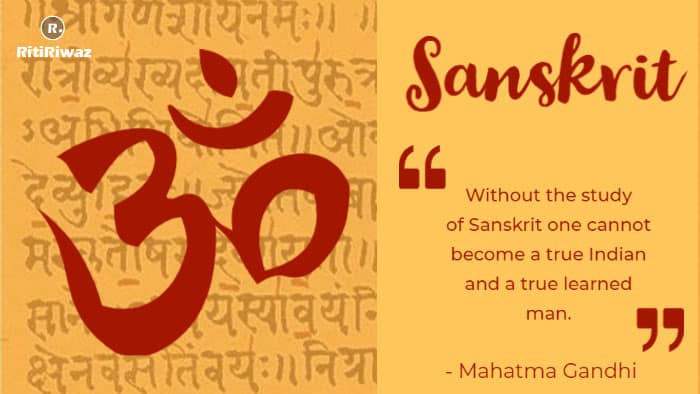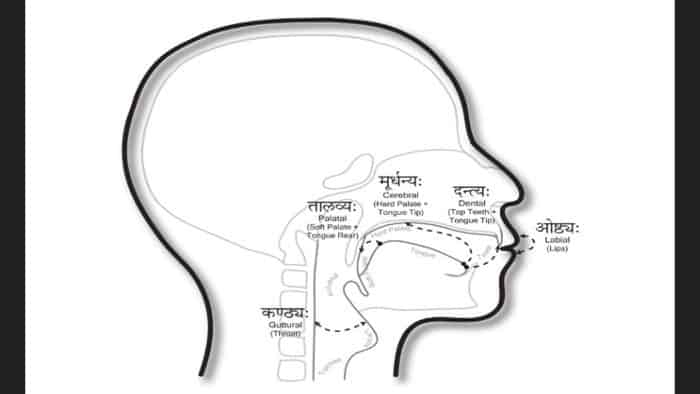Quotes on Sanskrit Language

Sanskrit, which is recognized as one of the oldest living languages of the world, is often misunderstood as only a language of religious hymns and rituals. Such an understanding does injustice to the great genius of this language and betrays ignorance of the work of great writers, thinkers, sages, and scientists like Kautilya, Charaka, Sushruta, Aryabhata, Varahamihira, Brahmagupta, Bhaskaracharya, and many others. Indeed, Sanskrit is much more than a language. It is a complete knowledge system that embodies the great learning traditions of ancient India.
Sanskrit has not only some of the greatest classics of world literature, but also a treasure of knowledge in mathematics, medicine, botany, chemistry, arts, and humanities. If we provide the missing links and establish the required inter-disciplinary approaches, the wisdom of Sanskrit has the potential of enriching the present-day knowledge systems and Indian languages immensely.
“ The Vedic language is not Sanskrit but Chandas. Chandas means not only meter but also the Vedas in which are metrically composed as well as the language of the Vedas. The language used in ordinary speech, poetry the Puranas, the epics, other writings is Sanskrit. The Vedic language alone is Chandas. When Panini makes a reference to the Vedas he says “iti chandasi” and when he refers to any question relating to Sanskrit he says, “iti loke”.
Sanskrit, which evolved through a constant process of ‘samskara’ or refinement, contains many words drawn from the Vedic language. But if there is a language that is based entirely on sounds meant for the well being of mankind it is Chandas. ‘Krtam ‘means created; ‘samskrtam’ means well created it would thus mean that the language called Sanskrit was created with great effort and care. – Kanchi Paramacharya Swamikal (1894 – 1994)

“The ancient classical creations of the Sanskrit tongue, both in quality and body and abundance of excellence, in their potent originality and force and beauty, in their substance and art and structure, in grandeur and justice and charm of speech, and in the height and width of the reach of their spirit stand very evidently in the front rank among the world’s great literature. The language itself, as has been universally recognized by those competent to form a judgment, is one of the most magnificent, the most perfect and wonderfully sufficient literary instruments developed by the human mind; at once majestic and sweet and flexible, strong and clearly formed and full and vibrant and subtle. –Maharishi Sri Aurobindo
“My idea is, first of all, to bring out the gems of spirituality that are stored up in our books, and in the possession of a few only, hidden, as it were in monasteries and forests to bring them out. In one word, I want to make them popular. The ideas must be taught in the language of the people; at the same time, Sanskrit education must go along with it, because the very sound of Sanskrit words gives a prestige and a power and a strength to the race. Ramanuja, Chaitanya, and Kabir — they all raised the lower classes. Their teachings stopped almost within a century of the passing away of these great masters. The secret is here. They did not apply their energies to the spreading of the Sanskrit language among the masses. Even the great Buddha made one false step when he stopped the Sanskrit language from being studied by the masses. He wanted rapid and immediate results and translated and preached in the language of the day, Pali. That was great. Knowledge came but the prestige was not there, culture was not there. It is a culture that which withstands shocks, not a simple mass of knowledge; you can put a mass of knowledge into the world, but that will not do much good. There must come culture into the blood…….. The only safety I will tell you men who belong to the lower castes, the only way to raise your condition, is to study Sanskrit. Sanskrit and prestige go together in India; as soon as you have that none dares say anything against you. That is the one secret; take that up. — Swami Vivekananda
Suggested Read: Sanskrit – Mother of all Languages
If I was asked what is the greatest treasure which India possesses and what is her finest heritage, I would answer unhesitatingly — it is the Sanskrit language and literature and all that it contains. —Jawaharlal Nehru, First Prime Minister of India
Three people composed Ramayana in the Language of the Gods (Deva Bhasa) and I adapted the version of the earliest composer (Deva Bhasa=Sanskrit, earliest composer= Valmiki). —Great Tamil poet Kamban (Twelfth Century AD)
“Lord Shiva gave us both Sanskrit and Tamil”. —Kachiappa Swamikal & Paranjothy Muni (authors of Puranas in Tamil)
The Sanskrit language has also been the source of values and ideals that have sustained India through the ages. Like the great civilization of India, Sanskrit does not belong to any particular race, sect, or religion. It represents a culture that is not narrow and sectarian but open, tolerant, and all-embracing. The open-minded seers and thinkers who spelled out their vision and philosophy in the sacred Vedas and the Upanishads were able to balance the opposites in their life and in philosophy. It is this spirit of liberalism and tolerance embedded in Sanskrit that we must inculcate in our present-day life. The message of the ancient sages of India, who gave us the concept of ‘vasudhaiva kutumbakam’, the world as one family, continues to be of great significance to the world even today. –Prime Minister Dr. Manmohan Sing at the World Sanskrit Conference on 5-1-2012
“The Sanskrit language, whatever be its antiquity, is of a wonderful structure; more perfect than the Greek, more copious than the Latin, and more exquisitely refined than either, yet bearing to both of them a stronger affinity, both in the roots of verbs and the forms of grammar, than could possibly have been produced by accident; so strong indeed, that no philologer could examine them all three, without believing them to have sprung from some common source, which, perhaps, no longer exists; there is a similar reason, though not quite so forcible, for supposing that both the Gothic and the Celtic, though blended with a very different idiom, had the same origin with the Sanskrit; and the old Persian might be added to the same family.” –William Jones(1746-1794)Philologist
Suggested Read: World Sanskrit Day
